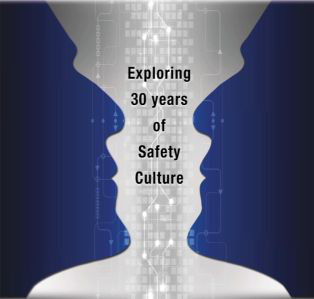Speakers
Synopsis
The criticality risk is an unwanted neutron chain reaction that could lead, if not under control, to a criticality accident resulting in a high release of energy accompanied by an intense emission of neutron and gamma radiation. Thus, the management of criticality risk in Fuel Cycle Facilities relies mainly on a set of prescriptions and requirements established by the licensees for achieving safety objectives.
This paper intends to show that, beyond prescriptions and requirements, a socio-technical approach is essential to define a relevant set of criticality safety rules favouring efficient and safe human activities. Indeed, a thorough knowledge of staff operating practices, beyond to contribute significantly to the definition of appropriate technical and organisational provisions, enhances safety management combining “rule-based safety” and “managed safety”. Rule-based safety (top down definition of the rules) can be achieved by anticipating undesirable situations and defining provisions to avoid and manage them in daily practices. On the other hand, managed safety (integration of local characteristics) develops the socio-technical system capacity to anticipate, to recognize and to formulate appropriate responses to unexpected scenarios that were not foreseen by the organization, or to rules that are not applicable to the operational realities. Thus, an effective safety management relies on human expertise, on the skills of individuals, on the quality of initiatives, and on the way teams and organizations perform the operations on a daily basis, interact and coordinate to integrate and regulate both ruled-based safety and managed safety.
We will pay specific attention to showing that risk analyses and criticality safety frameworks need to be considered in the light of diversity of working situations and complexity of their organisational interfaces. We will show that introducing and maintaining efficient and safe practices in the long term relies on appropriate staff risk awareness. For achieving this, in addition to the deployment of a relevant training program, the role played by local management and the support of criticality safety experts to operational staff is essential in order to make operating practices safer. Indeed, procedures and rules prepare the system for configurations that have been anticipated and play a major role in the ability to manage these situations. But situations also arise that are unforeseen or not (yet) analysed (hazards, evolutions following process modifications, degraded situations …). The way the system responds to these will depend on organizational lines of defence which allows the local resources of the teams and the management to be available in real time.
Formalizing the rules is necessary to manage foreseeable work situations especially when criticality risk is involved. Nevertheless, formalizing the response to foreseeable situations does not guarantee the relevance of the response to unforeseen situations. Worse still, organizations that base their entire safety policy on prescriptive formal procedures can find their robustness brought into question when a new or unforeseen situation arises.
Safe production occurs only because each person manages many sources of variation while performing their tasks, with expertise acquired through experience. As a consequence, global performance of a system in terms of production quality and safety is dependent upon interaction between social and technical components in workplaces. Finally, an organization contributes efficiently to safety when it facilitates an interaction between the formal rules, which provide general expertise, and the knowledge of specific operating situations and practices, which is held by the operators and managers on the field.
The paper refers to an example of an event that occurred in a French fuel fabrication, event involving non-compliance with rules and procedures to prevent criticality risks relative to conditioning, storage and internal transfer of containers which hold manufacturing scrap containing fissile material.
| Country or International Agency | France |
|---|---|
| Type "YES" to confirm submission of required Forms A and B via the official channels | yes |

